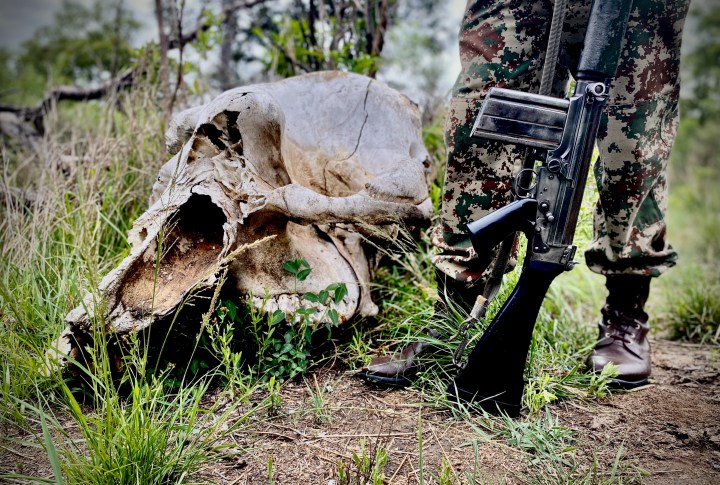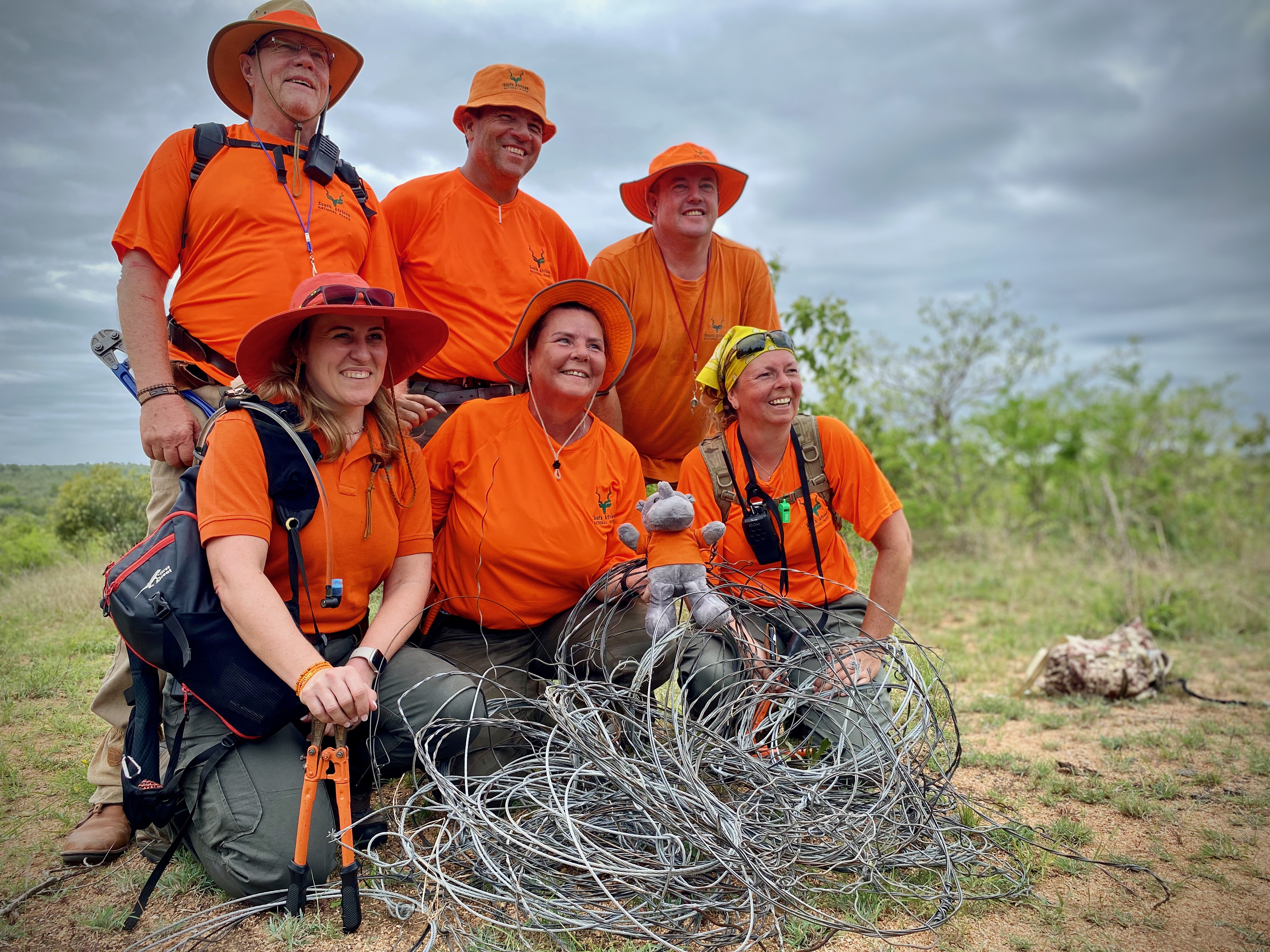WILDLIFE WOES
Court gives two accused snare poachers a slap on the wrist despite ‘admission’ of guilt

Snaring has surged 200% in the Kruger National Park, also causing lion extinctions elsewhere in sub-Saharan Africa. But a magistrate has ruled that two men, apprehended with snares in a poaching hotspot, deserve nothing more than a slap on the wrist.
Kruger National Park – The role of poverty, desperation and criminal networks in snaring has raised alarm bells in national media, with calls for transparency and action by the Democratic Alliance (DA).
The crisis in hotspots like Skukuza, Pretoriuskop and Pafuri has escalated dramatically, producing a 200% increase since the onset of the pandemic. At least 2,400, 4,450 and 7,270 traps were removed in the park in 2020, 2021 and 2022, respectively, according to Environment Minister Barbara Creecy’s Parliamentary replies to the DA’s Hannah Winkler.
On Wednesday, 15 November, however, two accused snare poachers were let off the hook by the Bushbuckridge Magistrate Court after being found guilty of possessing dangerous weapons and “wrongfully, unlawfully and intentionally” entering a national park.
The accused, both South African nationals aged 26 and 27, were apprehended on 8 September. The charges against them included contravention of the National Environmental Management: Protected Areas Act and possessing dangerous weapons, particularly “a black panga and a paring knife”, both of which were deemed capable of causing death or serious bodily harm if used for unlawful purposes.
Surprisingly, the accused were cautioned and discharged, which is a remarkably light slap on the wrist.
The Skukuza Regional Court, however, has a reputation for issuing consistently hefty sentences, such as convicting a poacher to an effective 30-year prison term on 5 October.
Watch: Our Burning Planet reporter Tiara Walters captures the indiscriminate nature of snares in Pretoriuskop, Kruger National Park. (Video: Tiara Walters)
As detailed by the accused’s charge sheet, the court was also obliged to consider obvious factors such as where they were found, whether the weapons could be associated with “any organised crime or any other criminal activity” and “any other relevant factor, including any explanation the person may wish to provide for his [sic] possession of the object”.
The accused, in fact, were found at the Sabie River near Skukuza, a hotspot, which is also consistent with Minister Creecy’s account that snarers were attracted to rivers and water courses where wildlife tended to congregate.
“The accused were caught setting up snares and in possession of those weapons,” explained Ike Phaahla, spokesperson for Kruger National Park. “They did admit to being there to poach which is a crime. They were in possession of two fishing nets and three snares.”
Court spokesperson Monica Nyuswa provided comprehensive case details but did not clarify Daily Maverick’s enquiries about the rationale behind the court’s decision by the deadline.
Creating an environment for other crimes to flourish
Snaring uses wire or cord anchored to a fixed point, and is arranged into a noose on animal paths. That noose can tighten its grip on the prey for weeks, persistently cutting into its flesh. For animals not found and treated within the park, of which only 4% consists of roads, profound pain and death by infection are the most likely outcomes.
The spike is also a problem for biodiversity at large, because snarers set fires to lure bushmeat targets to new-growth vegetation.
In 2023 alone, at least 135 buffaloes have been killed out of 415 known snare casualties across species. Antelopes usually targeted for bushmeat have also stood out, SANParks told us — including impala (115 known deaths); zebra (48); kudu (25); and nyala (23).
As Daily Maverick reported on 12 November, just three days before the court reached its decision, buffaloes now appeared to be a prime target of criminal networks that previously profited off rhino poaching. Since the park’s rhinos have been dehorned, and whittled down to less than 3000, local poaching had shifted to KwaZulu-Natal in the first half of the year, haemorrhaging more than 60% of the country’s poached rhinos. (Only 43 were poached in Kruger, but more than 10,000 had been lost since the start of the rhino wars in 2007).
“Remember most of the people here, they were relying on rhino poaching for survival,” Pretoriuskop section ranger Rangani Tsanwani, who had been working in the park for about 20 years, told us. To down quarries as large as buffaloes, some poachers were resorting to more than enormous snares.
“Now they don’t have anything that is bringing food to the table — so they are moving to buffaloes, shooting the buffaloes and selling the meat,” Tsanwani said.
In Pretoriuskop, which was littered with permutations of wire and cord during our October field visit, we also stumbled into a graveyard of elephant bones. Although the age of this shooting site was unclear, this deathly scene yielded no immediate big trees to hold a jumbo-sized snare.
According to a ranger we could not identify on camera for security reasons, this suggested that the tusker had been shot and slaughtered in the heart of a snaring hotspot. In other words, snaring fostered entry points for the deployment of other weapons, such as firearms.
All six elephants killed in the park this year fell victim to snares, SANParks CEO Hapiloe Sello recently told Parliament’s environment portfolio committee.
Since this form of poaching is covert and difficult to track, the number of actual deaths could be higher.
And while the park’s megafauna populations — except for rhino — are largely increasing, bushmeat snaring has set disturbing precedents elsewhere. Co-led by Oxford University and the Endangered Wildlife Trust, their new Nature-published study says that snares have likely caused local lion extinctions in Zambia’s Nsumbu National Park.
‘Thriving criminal activity around game meat’
Phaahla, the park’s spokesperson, expressed disappointment about the sentence.
“Kruger is surrounded by poverty-stricken communities where there is no service delivery, unemployment is very high, and there is little or no law enforcement,” he noted. “That is the climate the park is operating in.”
Removing traps and treating wounded animals was a laborious and costly time thief, especially in the park’s challenging terrain.

A group of SANParks honorary rangers display the 66 snares they hunted down and dismantled, together with Kruger field rangers, on 25 October. (Photo: Tiara Walters)
To fight the scourge, rangers walked around 10km a day, Tsanwani, the Pretoriuskop section head, pointed out.
“If you’ve got snares like this, it’s disturbing to your work routine,” he noted.
Phaahla said: “Snaring happens along rivers and water courses closer to the Kruger boundary and not at isolated waterholes.”
There was “ongoing work to establish causal effects but overall, there seems to be a thriving criminal activity around game meat” — meaning that snaring was not just about survival but burgeoning buyers lined up outside the park.
“Our SANParks honorary rangers, field rangers and conservation managers do go out every day to remove snares. We have removed on average about 500 snares weekly from the boundary areas,” he revealed. “It will take all the stakeholders to make this a success, especially law enforcement agencies.”
In response to the surge, DA committee member Hannah Winkler said she would initiate more Parliamentary questions. These enquiries would seek insights into the extent of the challenge across all SANParks reserves, and how effective anti-poaching initiatives were. DM
Read the other recent articles in this series:
Snaring in Kruger National Park spikes more than 200% amid socioeconomic crisis



















So a corrupt magistrate? Can the NPA appeal this?